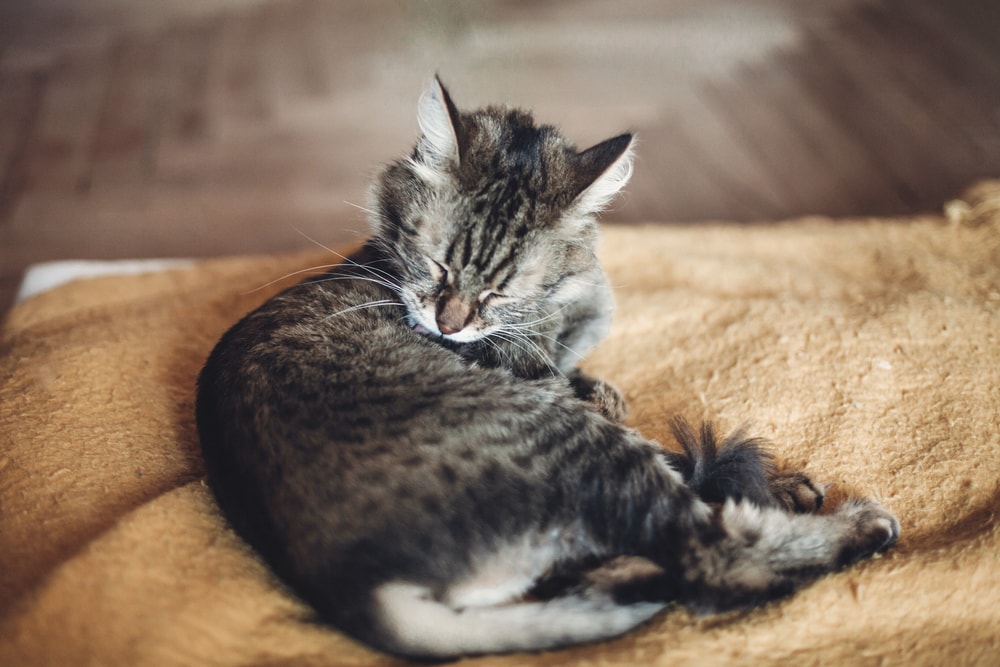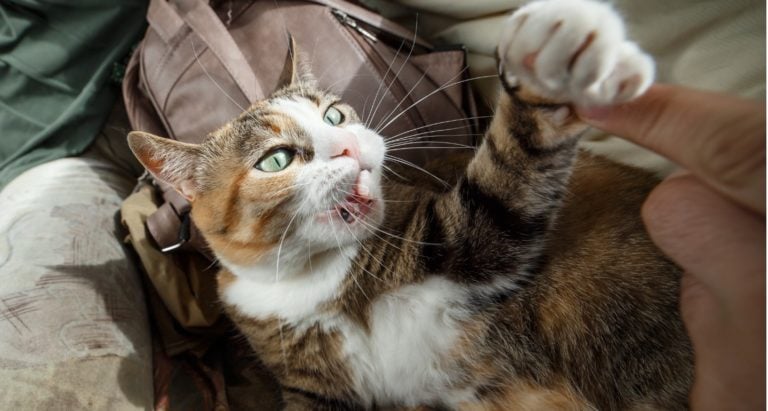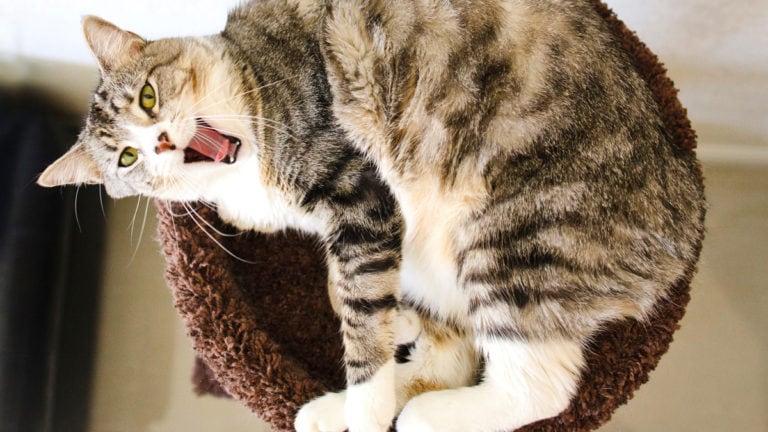Q:
My 5-year-old Maine Coon mix, Jack, has always been very playful and cuddly,but the past year has been a hard. Last year, my cat saw the vet for a sore on my cat’s his back. The vet thought it was an infection from a flea bite, but no fleas were detected on him. The vet put him on prednisone. I thought the problem was resolved. But six months later, it started again. This time he bit and pulled his hair out. I brought him back to the vet. Again, my cat’s vet put the cat on prednisone, and once again it appeared to have gone away. Two months ago, to my dismay, the situation got even worse.
Jack now licks and pulls out clumps of hair without a second thought. I took him to the vet again, and we decided to put Jack on Clomicalm, an antidepressant. Honestly, I am not sure if it is working or not; they say it takes four to six weeks to work, and he has been only been on it for four weeks. We moved to Florida two years ago, but this issue did not start until after a year of moving. I have three cats in total and only Jack seems to have the problem. Four days ago, I changed Jack’s food despite the vet saying it wasn’t a cat food allergy, as food allergy would affect just the cat’s head and face. The vet has done blood tests and a fungal culture for ringworm, and all came back negative.
Jack still licks himself obsessively until he is bare in spots (with sores at times) and still pulls at his fur. The vet recommended that I increase the dosage from a ¼ tablet to ½ tablet; which I did three days ago. Any advice you could offer would be greatly appreciated.
A:
I suspect that your cat has some kind of allergic dermatitis. The three most common cat skin allergies are flea allergy, food allergy and allergy to inhaled substances (also called “atopy”). If your cat is totally indoors and fleas or flea dirt was not seen during examination, then flea allergy is unlikely. I would have treated your cat with a dose of a monthly topical cat flea treatment product, just to be sure. But I feel confident that your cat does not have fleas or flea allergy.
Food allergy is a consideration. Although itching around the head and face is the most common sign, food allergy can actually manifest in a variety of ways. The fact that your cat responded so dramatically to the steroid prednisone makes cat food allergy less likely, as food allergy usually shows no response — or very little response — to steroids. To definitively diagnose food allergy, you would need to feed your cat a hypoallergenic diet (one that contains a protein source to which your cat has never been exposed) and then observe whether your cat’s skin problem resolves. This can take up to 12 weeks.
Psychogenic Alopecia — hair loss caused by a cat pulling out its hair due to psychological causes — is a possibility, however, I think this is unlikely, again because of the dramatic response to steroids. Your veterinarian prescribed an anti-anxiety drug, so he must be thinking that a psychological basis for the constant grooming is a consideration, however, you’re not seeing any response after four weeks on the medication. It’s possible that your cat simply doesn’t respond to this particular anti-anxiety drug, and that another drug would be effective, however, I really don’t think that’s the case.
I think your cat has atopy. Your recent move has probably resulted in exposure to a whole new variety of allergens. To prove atopy, you’d have to take your cat to a board certified veterinary dermatologist for skin testing. This may not be necessary, however. An alternative would be to put your cat back on prednisone twice daily, to get the itching under control, and then taper the dose to the lowest dose that controls the itching. This can usually be accomplished with every other day therapy. At these low doses, side effects from steroids (drinking a lot, urinating a lot, increased appetite, immunosuppression, potential for diabetes) are very unlikely to be seen. Omega-3 fatty acids can be anti-inflammatory in cats and should be prescribed in addition to the steroids. Your veterinarian undoubtedly carries some form of omega-3s. They should be tried for one month, at minimum. If they help with the itching, it may be possible to discontinue the steroids completely and maintain your cat’s skin on just omega-3s alone.
By: Arnold Plotnick, DVM
Featured Image: Via Bogdan Sonjachnyj/Shutterstock
Share:









